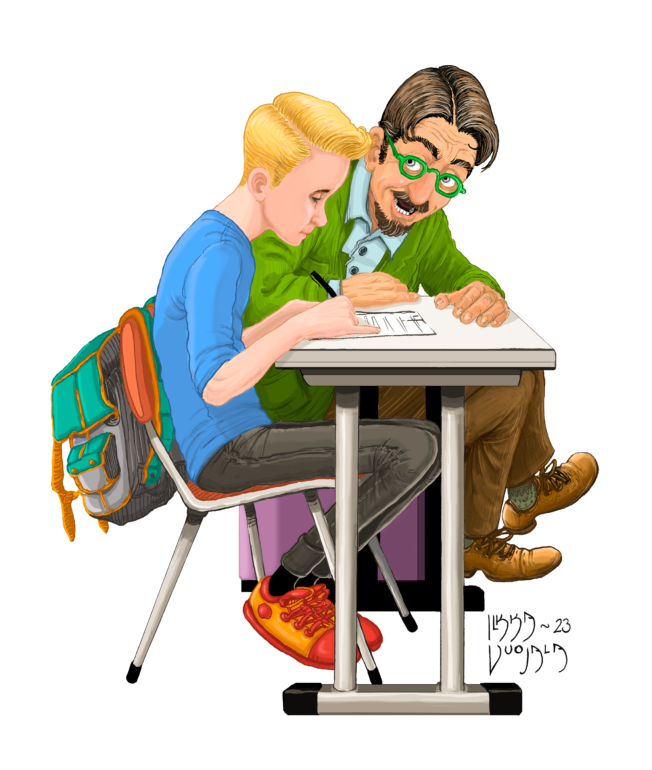Learning support

- The purpose of student guidance is to support, help, and guide students so that each student can cope as well as possible with their studies in basic education and is able to make appropriate and suitable decisions regarding their education and career choices.
- Student guidance includes both lessons and personal discussions. The aim of the guidance is to foster a positive attitude towards further studies and work. Key contents include work life, professions, and educational opportunities, as well as the significance of various choices regarding further studies and transitioning to the workforce. The main responsibility for implementing student guidance lies with the student counselor. Every teacher in the school participates in the guidance related to their subject area.
- Familiarization with the working life is an important part of student guidance. Familiarization methods include lessons, visits, expert guest lectures, fairs, and work life orientation periods, known as TET periods, which occur every year at all grade levels.
- Collaboration between home and school regarding study and future plans supports the student’s decisions. Parents are encouraged to contact the school regarding any study-related matters and to participate in the information sessions and parent evenings organized by the school.
- The homework and exam park meets on Tuesdays at 14:00 under the guidance of the school counselor in classroom 107. In the park, students complete assignments that have not been done on time by the given deadline.
- “A student who has neglected their assignments may be kept at school for up to one hour at a time to complete these tasks.” (School regulations, Basic Education Act 36§)
- In homework park, students can also take makeup exams. The teacher determines the deadline by which the exam must be completed. If the exam is not completed by the deadline, the grade will be a 4.
- Remedial teaching is individualized or small-group instruction provided to students who have temporarily fallen behind in their studies or need it for other reasons (not due to trips).
- If a student does not meet the objectives set for a subject, they must have the opportunity to receive remedial teaching before their performance is assessed as weak. The initiative for organizing remedial teaching can be made by a teacher, student, or guardian.
- The multidisciplinary student welfare team at Turenki coeducational school may include the principal, school psychologist, school nurse, social worker, special education teacher, and guidance counselor. If necessary, parents, students, and teachers (e.g., class teacher) can be invited to the student welfare team meeting. The student welfare team meets twice a year and provides individual student welfare as needed.
Principles of the Student Welfare Team’s Operations
- The student welfare team aims to monitor the progress of students and groups, agrees on measures, support actions, and follow-ups as needed, as well as on the division of labor and communication in student matters. The student welfare team strives for preventive action whenever possible.
- Student welfare-related measures are discussed in the student welfare team, which supports physical, mental, and social well-being and coordinates student welfare.
- Additionally, a PASI group (=pedagogical expert group) operates at Turenki coeducational school, which meets every Monday. The PASI group discusses current and acute challenges related to learning. Furthermore, the PASI group reviews the overall situation of all classes in the school during the autumn.
Contact Us
Luukkainen Sanniella
Guidance Counsellor
Lower Secondary Schools, Turenki Coeducational School
Kannisto Rita
Guidance Counsellor
Janakkala Upper Secondary School, Turenki Coeducational School